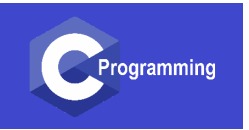C PROGRAMMING
INTRODUCTION TO C PROGRAMMING
➢ Introduction to programming languages and C’s significance.
➢ Understanding the structure of a C program, compilation, and execution.
➢ Variables, data types, constants, and keywords in C.
➢ Rules and conventions for naming identifiers
CONTROL STRUCTURES AND DECISION MAKING
➢ Use of if, if-else, nested if-else statements.
➢ Switch-case statements for decision making.
➢ Working with while, do-while, and for loops.
➢ Break and continue statements for loop control.
FUNCTIONS AND SCOPE
➢ Writing, calling, and defining functions in C.
➢ Understanding function prototypes, arguments, and return values.
➢ Scope of variables (local, global) and their lifetime.
➢ Storage classes: auto, static, extern, and register.
ARRAYS AND POINTERS
➢ Working with one-dimensional and multidimensional arrays.
➢ String handling functions and operations.
➢ Understanding pointers, pointer arithmetic, and pointer to pointers.
➢ Dynamic memory allocation and deallocation (malloc, calloc, free).
STRUCTURES AND FILE HANDLING
➢ Defining and using structures and unions in C.
➢ Nested structures and structure pointers.
➢ Working C (opening, reading, writing, closing files).
➢ Sequential and random file access methods.
ADVANCED CONCEPTS
➢ Understanding pre-processor directives (#define, #include, etc.).
➢ Writing and using macros in C.
➢ Handling runtime errors and exceptions.
➢ Techniques for debugging and troubleshooting C programs.
DATA STRUCTURES AND ALGORITHMS (BASIC OVERVIEW)
➢ Overview of basic data structures like arrays, linked lists, stacks, and queues.
➢ Basic algorithms (searching, sorting) and their implementations.
Project Work and Applications
➢ Applying C programming skills to solve
practical problems.
➢ Building small applications or projects using C.




